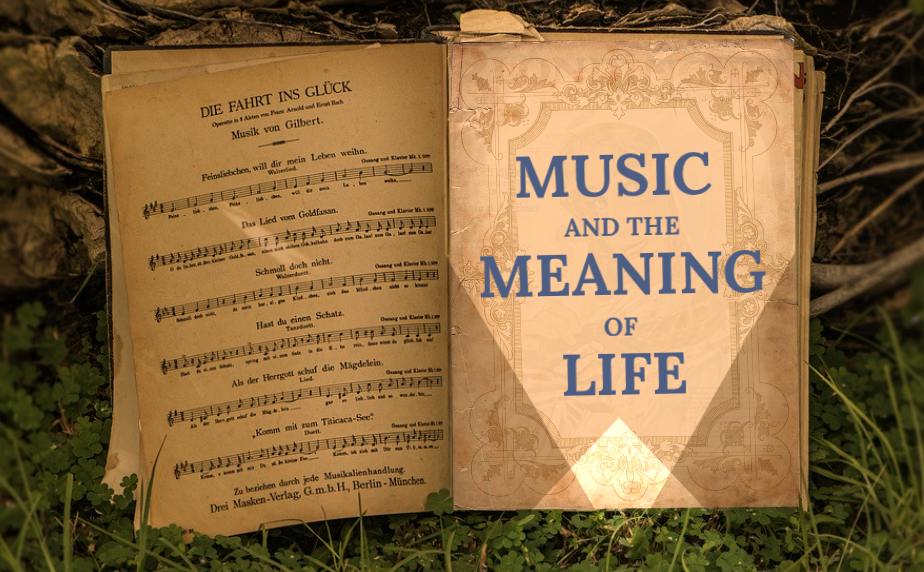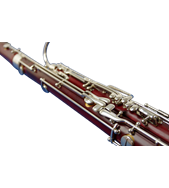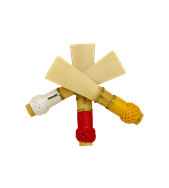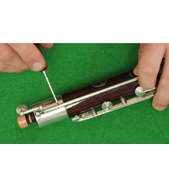Music and the Meaning of Life
June 24th, 2020

Music and the Meaning of Life
Article Author: Martin Ludlow, In-House-Bassoon Specialist and Director at Double Reed Ltd.
Music and the Meaning of Life
Most of us have had a chance to review our lifestyles in the light of COVID-19, the lockdown and all the changes which have been forced on us in the past few months. A good many of us are realising that not all the values and objectives we have been following are bringing the benefits hoped for, and are wondering about how to achieve more meaning and value in what we do.
Music, out of all human activities, has probably brought more meaning and value to people’s lives, across all cultures and historical periods, than just about anything else. For many people, listening to music – live or recorded, alone or more especially with others – is one of the most uplifting and moving experiences they have*.
However, making music greatly amplifies that experience – whether it be singing in a choir (or at a rugby match or in church or at a pop festival), playing an instrument or engaging in other forms of musical performance**.
If music-making brings us the best that music can offer, how can we introduce it into our lives – or maybe reintroduce it after a long absence?
“Oh, but I can’t sing or play an instrument; I have no talent”
One of the biggest myths about music-making is that you have to have talent to do it. While some may have more aptitude than others, in fact we all have more than enough aptitude to sing or play an instrument to a decent, and immensely satisfying, level. No matter your musical background, ability to sing in tune, age or anything else, you can learn to sing or play an instrument. All it needs to reach a decent standard of proficiency is a teacher and daily practice, and slowly but surely you will steadily improve.
Singing has advantages – you don’t need to buy an instrument and there are lots of opportunities in most areas of the UK to sing with others (once the COVID-19 crisis is over or we have found ways of dealing with it). However, if singing isn’t quite your thing, then what else can you do?
Piano, analogue or digital, is for many a good option. The only drawback is that it is difficult to play with others, and one of the major benefits of playing music is the opportunity to enrich the experience by playing with others.
If you lean towards the classical side of music then the obvious next option is an orchestral instrument. Most areas of the UK have amateur orchestras and ensembles at a variety of levels, giving opportunities for playing with others. If you are already fixed on one instrument you have always wanted to play, then all you need to do is find a teacher and buy an instrument.
However, if you are not sure of the instrument you would like to play, then what are your best options?
If your objective is to get playing and join an amateur orchestra as soon as you can, then it is worth bearing in mind that many orchestras have a waiting list for the most popular instruments, so you may have a long wait if you decide to take up, e.g., the flute. But the same orchestras will welcome you with open arms if you play something less popular.
‘Less popular’ doesn’t mean ‘less satisfying to play’, but is often based upon practicalities and cultural perceptions as much as anything else. Here are a few reasons why some instruments are less popular, and therefore make it easier to get into an orchestra if you play one, than others.
Size – large instruments are less easy to transport and therefore the pool of potential players is smaller, as you either need to be fairly young and strong or have access to a decent-sized car.
Role – some instruments have fewer solos, and carry the “tune” less often than others. As they are less noticeable, fewer people want to play them. But this is not to say that these instruments do not have musically interesting and satisfying roles to play, just that they aren’t quite so prominent.
Position in the orchestra – some instruments are habitually placed towards the back of the stage and so again are less noticeable, and therefore fewer people are attracted to them.
Cost – the more expensive instruments at a beginner or budding amateur level are naturally less attractive
Cultural perception – some instruments are more highly esteemed than others; sometimes this can be justified, but usually it is because the less-highly-esteemed instruments are just less well known (see points two and three above) and therefore are not as appreciated.
Several instruments fall into the ‘less popular’ category, but as we are passionate about the bassoon it is worth dwelling on the fact that the bassoon is perhaps the ideal instrument for getting into an amateur orchestra, as there are fewer players of the bassoon around than almost any other instrument.
Using the criteria above, the reasons become clear. It is fairly bulky (but nowhere near a double bass, and a case with back straps helps a lot); it doesn’t have as many solos as some other instruments (but if you listen for it, it is usually easy to identify); it is positioned towards the back of the orchestra and so the top joint is all that can often be seen; it is quite expensive to buy (because it has such a wide range and therefore a lot of very precisely-made keys); and it is not very well known, and therefore its virtues are not appreciated.
The bassoon is not the heaviest, most expensive, least prominent, least well known, etc., but if you put all the factors together, in combination they make it the instrument that fewer people opt for.
However, they really don’t know what they are missing. The bassoon has a very dedicated, even fanatical, following among those who play it and therefore properly appreciate it. It has amazing range of 3 ½ octaves; it has a beautifully balanced, resonant character, which changes as you go up the register in a very nuanced way so that each note is distinctive; it is wonderfully expressive – it is known for its pathos and humour, but that is not its limits; it is a wonderfully complex instrument, acoustically, mechanically and in every other way, so that every bassoon has its own unique character, even ones made by the same maker at the same time.
Playing a musical instrument is one of the most meaningful and value-laden activities we can enjoy, especially so if we can play in an ensemble with others. And the quickest and easiest way to achieve this is to play one of the less popular instruments, with the bassoon having the distinction of being an undeservedly less popular instrument while at the same time being an immensely expressive and subtle instrument to play, giving endless satisfaction to anyone learning it.
*This is why it is so important that the UK’s amazing culture of performing music and concert-going needs to be preserved and fostered, and why opportunities to experience music need to be enhanced rather than shutdown, as is likely to be the case once COVID-19 recedes.
**That is why giving people, especially young people, the tools and training to participate in music making is now more important than ever.
Article Author: Martin Ludlow, In-House-Bassoon Specialist and Director at Double Reed Ltd.



